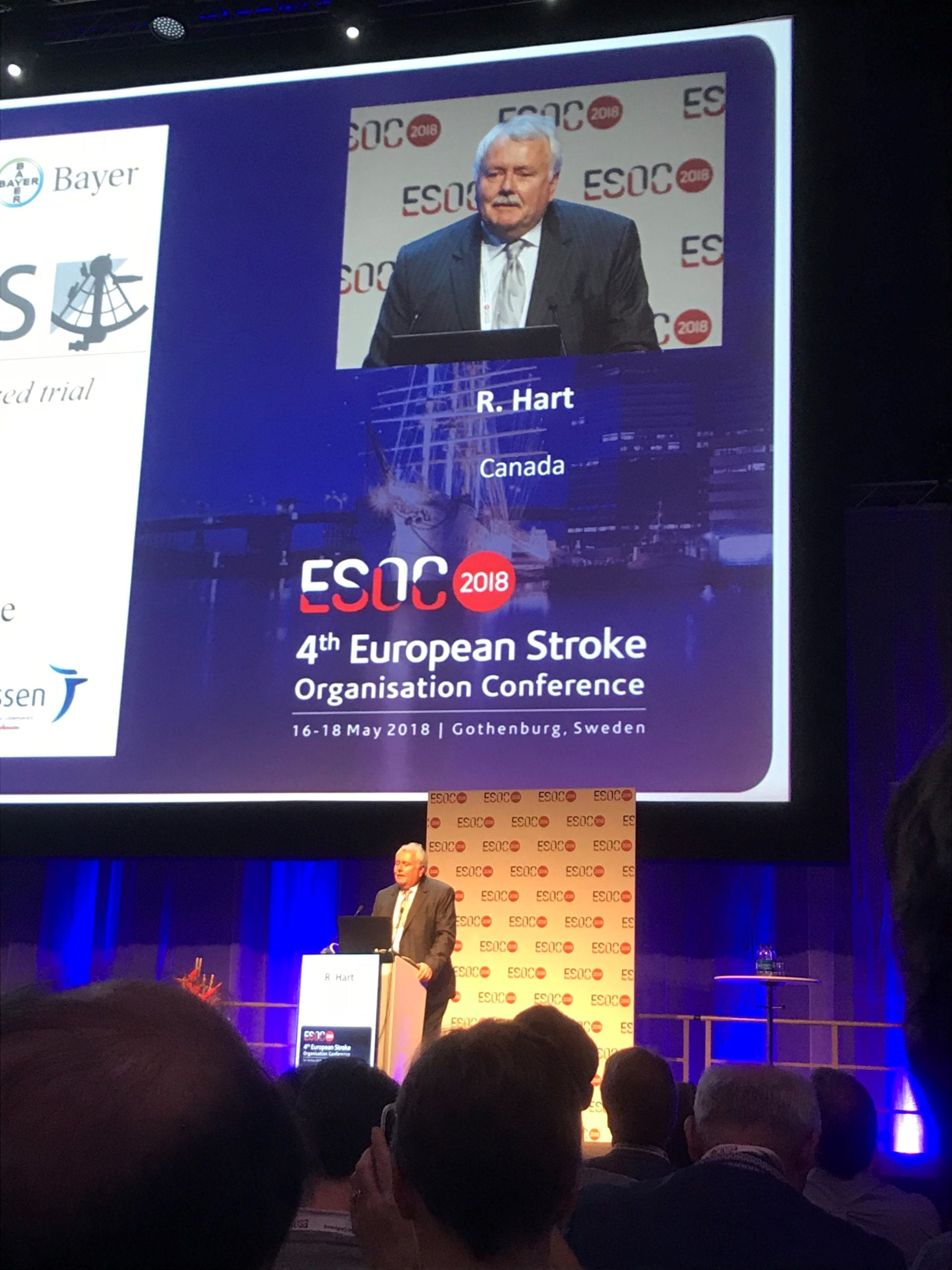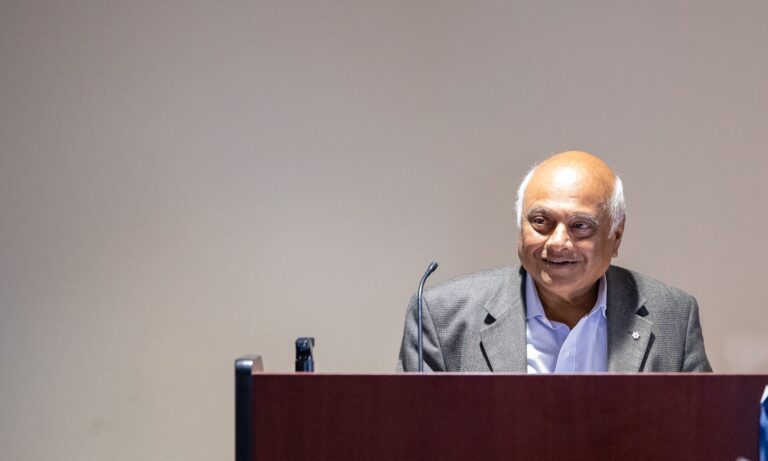The findings of the Population Health Research Institute study, NAVIGATE ESUS have been published in The New England Journal of Medicine, May 2018. The first author of the NEJM article, Dr. Robert Hart, Principal Investigator – Stroke & Cognition Program Population Health Research Institute, presented the article’s findings at the 4th European Stroke Organisation Conference (ESOC 2018) in Gothenburg, Sweden May 16 – 18, 2018.
Dr. Hart, who is also Professor- Division of Neurology, Department of Medicine, McMaster University, shared with his colleagues at ESOC 2018 the results of the multicenter, randomized, double-blind, double-dummy, active-comparator, event-driven, superiority phase III study, which compared the efficacy and safety of rivaroxaban (at a daily dose of 15 mg) with aspirin (at a daily dose of 100 mg) for the prevention of recurrent stroke in patients with recent ischemic stroke that was presumed to be from cerebral embolism but without arterial stenosis, lacune, or an identified cardioembolic source.
The randomized trial on the secondary prevention of stroke and prevention of systemic embolism in patients with a recent Embolic Stroke of Undetermined Source (ESUS), involved 7,2143 participants at 459 centers in 41 countries. The study concluded that rivaroxaban was not superior to aspirin with regard to the prevention of recurrent stroke after an initial ESUS, and was associated with a higher risk of bleeding.
Read the article by Dr. Hart and his coauthors in the New England Journal of Medicine.




